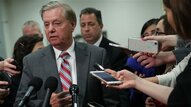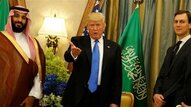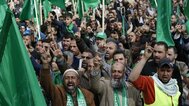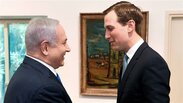5 june 2019

US Senator Lindsey Graham
A top Republican senator has warned US President Donald Trump that the behavior by Saudi Crown Prince Mohammed bin Salman “cannot be ignored,” as a bill is introduced to block US arms sales to the kingdom and the UAE.
Senator Lindsey Graham, who is a close ally of the president, made the comment in a statement on Wednesday, Politico reported.
“Now is not the time to do business as usual with Saudi Arabia,” Graham said in a statement. “I am also very concerned about the precedent these arms sales would set by having the administration go around legitimate concerns of the Congress. I expect and look forward to strong bipartisan support for these resolutions of disapproval.”
A bipartisan group of senators, including Graham, introduced resolutions of disapproval in an effort to prevent the United Arab Emirates and Saudi Arabia from getting US arms for now.
Senator Bob Menendez, the top Democrat on the Senate Foreign Relations Committee, urged Secretary of State Mike Pompeo, to allow Congress to review the sales, after the US top diplomat asserted that the Trump administration would go ahead with the arms sales despite the Saudi’s murder of Jamal Khashoggi and its war on Yemen.
Menendez, one of the co-sponsors of the bill, warned that he is even “prepared to move forward with any and all options to nullify the licenses at issue for both Saudi Arabia and UAE and eliminate any ability for the administration to bypass Congress in future arms sales.”
Republican Senators Rand Paul of Kentucky and Todd Young of Indiana as well as Democratic Senators Chris Murphy of Connecticut, Patrick Leahy of Vermont and Jack Reed of Rhode Island are among other co-sponsors of the bill.
Despite the heinous murder and dismembering of the Washington Post journalist, which the CIA believes was directed by MBS, Trump bypassed Congress last month to sell even more arms to Saudi Arabia.
Trump has also disregarded the CIA’s assessment about the role the Saudi de facto ruler played in the murder at the Saudi consulate.
Khashoggi was killed and his body was dismembered by a Saudi hit squad after being lured into the consulate on October 2, 2018.
The Trump administration has remained a staunch supporter of Riyadh even as a humanitarian crisis is underway in Yemen, under aggression from the neighboring kingdom.
The US Senate passed a bipartisan resolution earlier this year to end US Support for the Saudi war on impoverished Yemen.
A top Republican senator has warned US President Donald Trump that the behavior by Saudi Crown Prince Mohammed bin Salman “cannot be ignored,” as a bill is introduced to block US arms sales to the kingdom and the UAE.
Senator Lindsey Graham, who is a close ally of the president, made the comment in a statement on Wednesday, Politico reported.
“Now is not the time to do business as usual with Saudi Arabia,” Graham said in a statement. “I am also very concerned about the precedent these arms sales would set by having the administration go around legitimate concerns of the Congress. I expect and look forward to strong bipartisan support for these resolutions of disapproval.”
A bipartisan group of senators, including Graham, introduced resolutions of disapproval in an effort to prevent the United Arab Emirates and Saudi Arabia from getting US arms for now.
Senator Bob Menendez, the top Democrat on the Senate Foreign Relations Committee, urged Secretary of State Mike Pompeo, to allow Congress to review the sales, after the US top diplomat asserted that the Trump administration would go ahead with the arms sales despite the Saudi’s murder of Jamal Khashoggi and its war on Yemen.
Menendez, one of the co-sponsors of the bill, warned that he is even “prepared to move forward with any and all options to nullify the licenses at issue for both Saudi Arabia and UAE and eliminate any ability for the administration to bypass Congress in future arms sales.”
Republican Senators Rand Paul of Kentucky and Todd Young of Indiana as well as Democratic Senators Chris Murphy of Connecticut, Patrick Leahy of Vermont and Jack Reed of Rhode Island are among other co-sponsors of the bill.
Despite the heinous murder and dismembering of the Washington Post journalist, which the CIA believes was directed by MBS, Trump bypassed Congress last month to sell even more arms to Saudi Arabia.
Trump has also disregarded the CIA’s assessment about the role the Saudi de facto ruler played in the murder at the Saudi consulate.
Khashoggi was killed and his body was dismembered by a Saudi hit squad after being lured into the consulate on October 2, 2018.
The Trump administration has remained a staunch supporter of Riyadh even as a humanitarian crisis is underway in Yemen, under aggression from the neighboring kingdom.
The US Senate passed a bipartisan resolution earlier this year to end US Support for the Saudi war on impoverished Yemen.

Jordan's Minister of Foreign Affairs Ayman Safadi has denounced Israel's plan to build 800 new settlement units in Occupied Jerusalem.
Safadi said in statements on Twitter that the new move blatantly violates international law.
The Israeli authorities have recently put forward tenders for the construction of over 800 housing units in East Jerusalem.
Safadi described the plan as "illegitimate" and said that it would "undermine efforts to achieve peace based on the two-state solution".
He called on the international community to act immediately toward putting an end to the Israeli violations.
In April Israel's Prime Minister Benjamin Netanyahu revealed, during an interview with a local media platform, that he had informed the US president Donald Trump about his intention to annex the West Bank settlements to Israel.
Netanyahu explained that the annexation will be carried out gradually and in coordination with the US.
Israel, since the occupation of the West Bank in 1967, has built 250 settlements, and currently over 400,000 settlers are living there.
Safadi said in statements on Twitter that the new move blatantly violates international law.
The Israeli authorities have recently put forward tenders for the construction of over 800 housing units in East Jerusalem.
Safadi described the plan as "illegitimate" and said that it would "undermine efforts to achieve peace based on the two-state solution".
He called on the international community to act immediately toward putting an end to the Israeli violations.
In April Israel's Prime Minister Benjamin Netanyahu revealed, during an interview with a local media platform, that he had informed the US president Donald Trump about his intention to annex the West Bank settlements to Israel.
Netanyahu explained that the annexation will be carried out gradually and in coordination with the US.
Israel, since the occupation of the West Bank in 1967, has built 250 settlements, and currently over 400,000 settlers are living there.

US President Donald Trump’s closeness with Saudi Arabia is harming American national security, says a top senator, slamming the commander in chief’s seven-time approval of nuclear tech transfer to the kingdom, twice in the wake of Jamal Khashoggi’s murder.
American Senator Tim Kaine made the comments in a statement released Tuesday, Politico reported.
“President Trump’s eagerness to give the Saudis anything they want, over bipartisan congressional objection, harms American national security interests and is one of many steps the administration is taking that is fueling a dangerous escalation of tension in the region,” said the Virginia Democrat.
Only 16 days after the dissident Saudi journalist was brutally murdered inside the monarchy’s consulate in Istanbul, the US president made one of the approvals on October 18, 2018. A second one was made on February 18 of the same year.
Despite the heinous murder and dismembering of the Washington Post journalist, which the CIA believes was directed by Saudi Crown Prince Mohammed bin Salman, Trump bypassed Congress last month to sell even more arms to Saudi Arabia.
The Trump administration has remained a staunch supporter of Riyadh even as a humanitarian crisis is underway in Yemen, under aggression from the neighboring kingdom.
Trump has also disregarded the CIA’s assessment about the role the Saudi de facto ruler, bin Salman, played in the murder at the Saudi consulate.
Khashoggi was killed and his body was dismembered by a Saudi hit squad after being lured into the consulate on October 2, 2018.
American Senator Tim Kaine made the comments in a statement released Tuesday, Politico reported.
“President Trump’s eagerness to give the Saudis anything they want, over bipartisan congressional objection, harms American national security interests and is one of many steps the administration is taking that is fueling a dangerous escalation of tension in the region,” said the Virginia Democrat.
Only 16 days after the dissident Saudi journalist was brutally murdered inside the monarchy’s consulate in Istanbul, the US president made one of the approvals on October 18, 2018. A second one was made on February 18 of the same year.
Despite the heinous murder and dismembering of the Washington Post journalist, which the CIA believes was directed by Saudi Crown Prince Mohammed bin Salman, Trump bypassed Congress last month to sell even more arms to Saudi Arabia.
The Trump administration has remained a staunch supporter of Riyadh even as a humanitarian crisis is underway in Yemen, under aggression from the neighboring kingdom.
Trump has also disregarded the CIA’s assessment about the role the Saudi de facto ruler, bin Salman, played in the murder at the Saudi consulate.
Khashoggi was killed and his body was dismembered by a Saudi hit squad after being lured into the consulate on October 2, 2018.
4 june 2019

Saudi Arabian authorities have reportedly arrested more than 60 people, including Palestinians and Saudis, on charges of supporting the Palestinian Hamas resistance movement.
Lebanese Arabic-language daily newspaper al-Akhbar, citing informed sources who requested anonymity, reported on Monday that officials in the conservative kingdom have been conducting a campaign against Saudi nationals and Palestinian expatriates for more than two months, detaining dozens of people over affiliation to the Palestinian group.
The report added that the most prominent figure among those arrested is Dr. Muhammad al-Khudari, who represented Hamas movement between mid-1990s and 2003 in Saudi Arabia.
Even though Khudari has left his position for years, he was detained and is now “being kept in detention under difficult conditions,” according to family members.
Al-Ahbar went on to say that the campaign of arrests coincided with the closure and tight control of bank accounts, and a ban on sending any money from Saudi Arabia to the Gaza Strip.
Saudi officials have apparently leveled charges of “supporting a terrorist movement and money laundering in support of terrorism and extremism” against those arrested.
Over the past two years, Saudi authorities have deported more than 100 Palestinians from the kingdom, mostly on charges of supporting Hamas resistance movement financially, politically or through social networking sites.
The Riyadh regime has imposed strict control over Palestinian funds in Saudi Arabia since the end of 2017.
All remittances of Palestinian expatriates are being tightly controlled, fearing that these funds could be diverted indirectly and through other countries to Hamas.
Money transfer offices are asking the Palestinians to bring forward strong arguments for conversion, and do not allow the ceiling of one’s money transfer to exceed $3,000.
Meanwhile, a number of families of the detainees have begun sending memos to legal bodies to know the fate of their relatives, at a time when the relationship between Saudi Arabia and Hamas are at their worst ever level.
On April 30, al-Akhbar said Saudi Crown Prince Mohammed bin Salman had reportedly offered Palestinian Authority chief Mahmoud Abbas 10 billion dollars in return for accepting US President Donald Trump’s controversial proposal for peace between the Israelis and Palestinians, dubbed “the deal of the century.”
The Lebanese daily newspaper noted that Abbas had turned down the offer, saying supporting the deal would be “the end of his political life.”
Citing leaked diplomatic reports based on conversations between the two Arab politicians, the paper noted that the reports -- written by the Jordanian envoy to Ramallah, Khaled al-Shawabkeh -- were based on briefings with a number of Palestinian officials.
The Palestinian Authority chief said political realities prevented him from accepting the so-called peace plan, emphasizing that he could not make concessions regarding Israeli settlements, the “two-state solution” and Jerusalem al-Quds.
Abbas also underscored that the Americans would not provide any written proposals, but would adopt a tactic similar to the 1917 Balfour Declaration that led to the Israeli occupation of Palestinian territories.
Earlier this month, a senior Hamas official told Press TV that Palestinians will resist the so-called deal of the century proposed by the administration of US President Donald Trump, stopping at nothing less than creating an “independent Palestinian state.”
“As Palestinians, we will not accept such ideas. We will resist. No one can accept selling his own land. We will not accept Jerusalem al-Quds being the capital of another state; it will be the capital of the Palestinian state forever,” said Hamas’ international relations committee head Osama Hamdan on May 3.
Lebanese Arabic-language daily newspaper al-Akhbar, citing informed sources who requested anonymity, reported on Monday that officials in the conservative kingdom have been conducting a campaign against Saudi nationals and Palestinian expatriates for more than two months, detaining dozens of people over affiliation to the Palestinian group.
The report added that the most prominent figure among those arrested is Dr. Muhammad al-Khudari, who represented Hamas movement between mid-1990s and 2003 in Saudi Arabia.
Even though Khudari has left his position for years, he was detained and is now “being kept in detention under difficult conditions,” according to family members.
Al-Ahbar went on to say that the campaign of arrests coincided with the closure and tight control of bank accounts, and a ban on sending any money from Saudi Arabia to the Gaza Strip.
Saudi officials have apparently leveled charges of “supporting a terrorist movement and money laundering in support of terrorism and extremism” against those arrested.
Over the past two years, Saudi authorities have deported more than 100 Palestinians from the kingdom, mostly on charges of supporting Hamas resistance movement financially, politically or through social networking sites.
The Riyadh regime has imposed strict control over Palestinian funds in Saudi Arabia since the end of 2017.
All remittances of Palestinian expatriates are being tightly controlled, fearing that these funds could be diverted indirectly and through other countries to Hamas.
Money transfer offices are asking the Palestinians to bring forward strong arguments for conversion, and do not allow the ceiling of one’s money transfer to exceed $3,000.
Meanwhile, a number of families of the detainees have begun sending memos to legal bodies to know the fate of their relatives, at a time when the relationship between Saudi Arabia and Hamas are at their worst ever level.
On April 30, al-Akhbar said Saudi Crown Prince Mohammed bin Salman had reportedly offered Palestinian Authority chief Mahmoud Abbas 10 billion dollars in return for accepting US President Donald Trump’s controversial proposal for peace between the Israelis and Palestinians, dubbed “the deal of the century.”
The Lebanese daily newspaper noted that Abbas had turned down the offer, saying supporting the deal would be “the end of his political life.”
Citing leaked diplomatic reports based on conversations between the two Arab politicians, the paper noted that the reports -- written by the Jordanian envoy to Ramallah, Khaled al-Shawabkeh -- were based on briefings with a number of Palestinian officials.
The Palestinian Authority chief said political realities prevented him from accepting the so-called peace plan, emphasizing that he could not make concessions regarding Israeli settlements, the “two-state solution” and Jerusalem al-Quds.
Abbas also underscored that the Americans would not provide any written proposals, but would adopt a tactic similar to the 1917 Balfour Declaration that led to the Israeli occupation of Palestinian territories.
Earlier this month, a senior Hamas official told Press TV that Palestinians will resist the so-called deal of the century proposed by the administration of US President Donald Trump, stopping at nothing less than creating an “independent Palestinian state.”
“As Palestinians, we will not accept such ideas. We will resist. No one can accept selling his own land. We will not accept Jerusalem al-Quds being the capital of another state; it will be the capital of the Palestinian state forever,” said Hamas’ international relations committee head Osama Hamdan on May 3.

Pro-Palestine coalitions, committees, and institutions on Monday organized a popular protest in the city of Casablanca in Morocco to voice condemnation of the deal of the century.
The protest took place in front of the US consulate amid intense police presence.
The protesters raised banners expressing solidarity with the Palestinian people and rejection of the visit of the US president Donald Trump's senior advisor Jared Kushner to Morocco to promote the deal of the century.
The protesters waved Palestine flags and confirmed their full support of the Palestinian cause until the occupation ends.
The protest took place in front of the US consulate amid intense police presence.
The protesters raised banners expressing solidarity with the Palestinian people and rejection of the visit of the US president Donald Trump's senior advisor Jared Kushner to Morocco to promote the deal of the century.
The protesters waved Palestine flags and confirmed their full support of the Palestinian cause until the occupation ends.
3 june 2019

Senior White House adviser Jared Kushner has refused to back Palestinian statehood ahead of the expected release of his "peace" plan, saying he believes the Palestinians are not ready to govern themselves.
Kushner also told US news site Axios that he did not mind the Palestinians do not trust him.
The Palestinians, he stated, "should have self-determination", without saying whether that would mean an independent state or some lesser form of autonomy.
Asked if the Palestinians could expect freedom from any Israeli regime or military interference, Kushner said "I think that it's a high bar".
The Palestinians have already dismissed the upcoming plan touted as the "deal of the century" by President Donald Trump, saying US actions so far have shown Washington is blatantly biased in favor of Israel.
The Washington Post said in April that the plan is likely to “stop short of ensuring a separate, fully sovereign Palestinian state.”
The so-called peace plan was expected to be unveiled at the end of the holy month of Ramadan in June.
During the interview, Kushner said he was not concerned over whether the Palestinians do not trust him.
"I'm not here to be trusted," he said, adding the Palestinian people would judge the deal based on whether "they think this will allow them to have a pathway to a better life or not."
Relations between the Palestinian Authority and the US took an unprecedented dip in late 2017, when Washington recognized Jerusalem al-Quds as Israel’s “capital”.
Palestinians want the West Bank as part of a future independent Palestinian state with East Jerusalem al-Quds as its capital. However, Israel insists on maintaining the occupation of Palestinian territories.
The Palestinians have rejected the US Middle East initiative as “the slap of the century” because it is said to hugely favor Israel.
Kushner also told US news site Axios that he did not mind the Palestinians do not trust him.
The Palestinians, he stated, "should have self-determination", without saying whether that would mean an independent state or some lesser form of autonomy.
Asked if the Palestinians could expect freedom from any Israeli regime or military interference, Kushner said "I think that it's a high bar".
The Palestinians have already dismissed the upcoming plan touted as the "deal of the century" by President Donald Trump, saying US actions so far have shown Washington is blatantly biased in favor of Israel.
The Washington Post said in April that the plan is likely to “stop short of ensuring a separate, fully sovereign Palestinian state.”
The so-called peace plan was expected to be unveiled at the end of the holy month of Ramadan in June.
During the interview, Kushner said he was not concerned over whether the Palestinians do not trust him.
"I'm not here to be trusted," he said, adding the Palestinian people would judge the deal based on whether "they think this will allow them to have a pathway to a better life or not."
Relations between the Palestinian Authority and the US took an unprecedented dip in late 2017, when Washington recognized Jerusalem al-Quds as Israel’s “capital”.
Palestinians want the West Bank as part of a future independent Palestinian state with East Jerusalem al-Quds as its capital. However, Israel insists on maintaining the occupation of Palestinian territories.
The Palestinians have rejected the US Middle East initiative as “the slap of the century” because it is said to hugely favor Israel.

US Secretary of State Mike Pompeo
US President Donald Trump has acknowledged that his Secretary of State Mike Pompeo’s doubts about his so-called deal of century “may be right.”
"Look, we’re doing our best to help the Middle East to get a peace plan, and he [Pompeo] may be right. I mean, most people would say that," Trump told reporters in Washington, DC, Sunday evening. “But if we can get a Mid-East peace plan that would be good.
And when Mike says that, I understand when he says that, because most people think it can’t be done. I think it probably can. But as I say often, we’ll see what happens.”
According to an audio recording of a private meeting between Pompeo and Israelis obtained by The Washington Post, the US top diplomat is heard suggesting that the plan is “unexecutable” and it might not “gain traction.”
“It may be rejected. Could be in the end, folks will say, ‘It’s not particularly original, it doesn’t particularly work for me,’ that is, ‘It’s got two good things and nine bad things, I’m out,’ ” said the former CIA chief. “The big question is can we get enough space that we can have a real conversation about how to build this out.”
Trump’s son-in-law Jared Kushner has said that the deal would be unveiled at the conclusion of the Muslim holy month of Ramadan, when Israeli Prime Minister Benjamin Netanyahu has formed a new administration in the wake of reelection.
The timeline could change as the Israeli parliament (Knesset) voted to dissolve last week, forcing the premier to runs for the post in a second election this year.
“I mean, Bibi got elected, and now all of a sudden they’re going to have to go through the process again until September?” Trump asked. “That’s ridiculous. So we’re not happy about that.”
The economic portion of the so-called deal of the century is set to be unveiled during a conference in Manama, Bahrain, on June 25-26.
All Palestinian factions have boycotted the event, accusing Washington of offering financial rewards for accepting the Israeli occupation.
US President Donald Trump has acknowledged that his Secretary of State Mike Pompeo’s doubts about his so-called deal of century “may be right.”
"Look, we’re doing our best to help the Middle East to get a peace plan, and he [Pompeo] may be right. I mean, most people would say that," Trump told reporters in Washington, DC, Sunday evening. “But if we can get a Mid-East peace plan that would be good.
And when Mike says that, I understand when he says that, because most people think it can’t be done. I think it probably can. But as I say often, we’ll see what happens.”
According to an audio recording of a private meeting between Pompeo and Israelis obtained by The Washington Post, the US top diplomat is heard suggesting that the plan is “unexecutable” and it might not “gain traction.”
“It may be rejected. Could be in the end, folks will say, ‘It’s not particularly original, it doesn’t particularly work for me,’ that is, ‘It’s got two good things and nine bad things, I’m out,’ ” said the former CIA chief. “The big question is can we get enough space that we can have a real conversation about how to build this out.”
Trump’s son-in-law Jared Kushner has said that the deal would be unveiled at the conclusion of the Muslim holy month of Ramadan, when Israeli Prime Minister Benjamin Netanyahu has formed a new administration in the wake of reelection.
The timeline could change as the Israeli parliament (Knesset) voted to dissolve last week, forcing the premier to runs for the post in a second election this year.
“I mean, Bibi got elected, and now all of a sudden they’re going to have to go through the process again until September?” Trump asked. “That’s ridiculous. So we’re not happy about that.”
The economic portion of the so-called deal of the century is set to be unveiled during a conference in Manama, Bahrain, on June 25-26.
All Palestinian factions have boycotted the event, accusing Washington of offering financial rewards for accepting the Israeli occupation.
